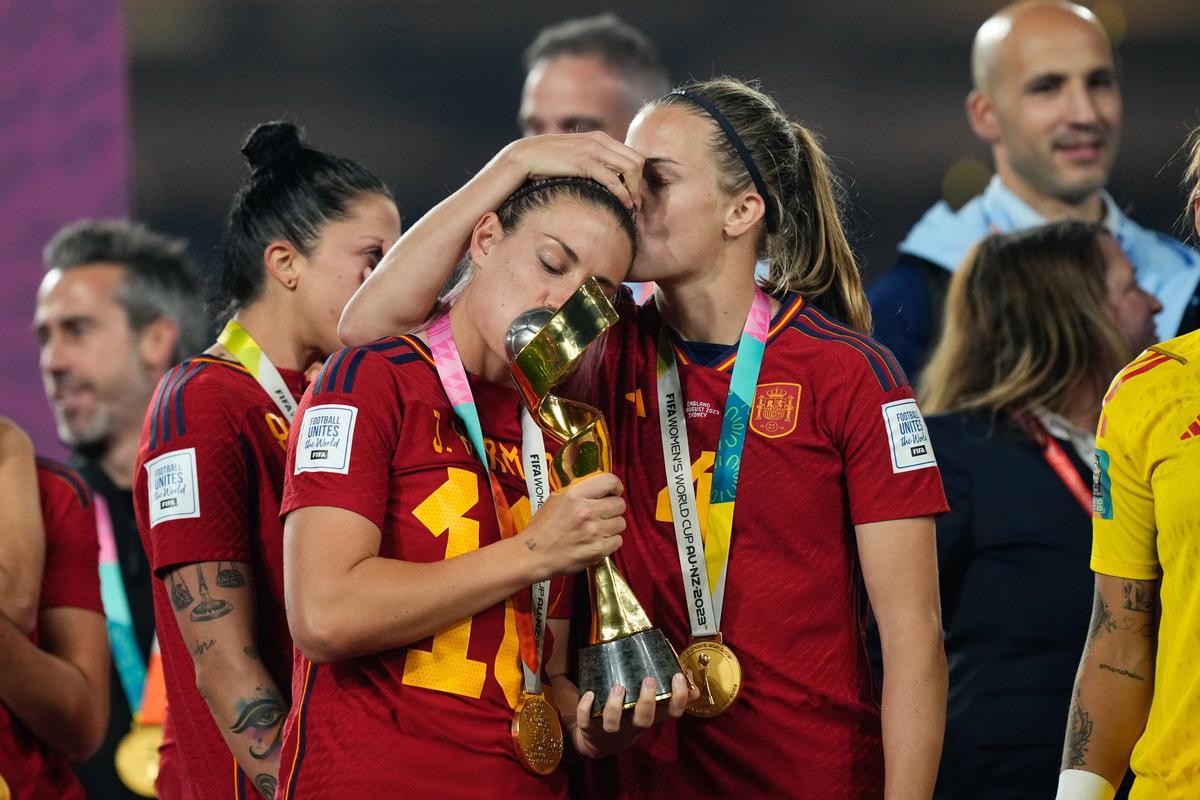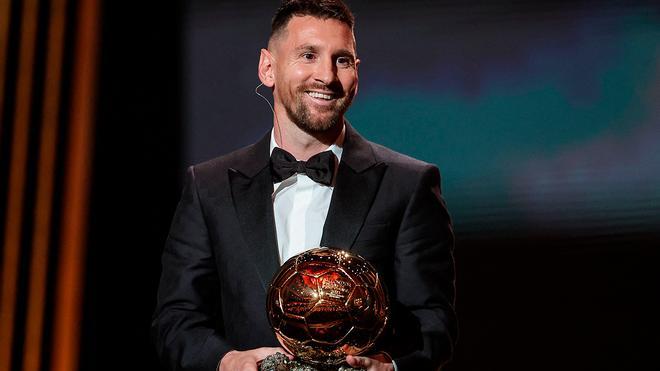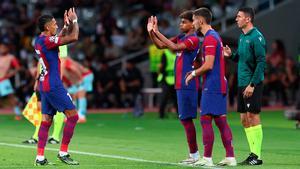Alexia Putellas and Irene Paredes: We have not been able to only be players

Alexia Putellas and Irene Paredes' press conference in Gothenburg is one that will go down in history. Clear, direct and forceful - and visibly physically and mentally exhausted by the intensity of the last few days and the lack of sleep - the two FC Barcelona and Spain players appeared before the media, at their request, to explain on behalf of the dressing room everything that has happened in the last month, since they became World Champions with their subsequent crisis, and what the current situation is.
The midfielder from Mollet began her speech by explaining "In summary, because we don't have much time and when we return to Spain we will do it more calmly so that nobody has any doubts" the facts are: "We have been demanding that they listen to us for a long time, because we were detecting that for several decades there has been systematic discrimination against women's football. Yesterday was the month after the World Cup we won and some unacceptable events took place, also with the Assembly. It was the straw that broke the camel's back. We didn't want to continue down this path."
Zero tolerance
"We must be clear that there is an open judicial process," Alexia continued, "and that there is a victim here, Jenni [Hermoso], who has neither consented to nor provoked any situation, and we comrades are going to stand by her side. Imagine what it is costing us. We've been sleeping for four hours a week and we've had to get it into our heads that we can't just be footballers.
She made it clear to a room full of journalists - both Spanish and Swedish - that the group "do not put or remove anyone, we simply denounce and ask the Federation to have zero tolerance, for Jenni, for us and so as not to set a precedent, with anyone who participates in abuse. They have listened to us, they are investigating and there is an open judicial process.
The agreement
Alexia explained that the meeting in Oliva was divided into two parts. The first, "for Jenni's case, where we made it clear that the protocols and the federation failed, because at no time so far has it positioned itself in favour of the victim, and we agreed on some changes and the creation of a joint commission to ensure its implementation. We ask for a much more transparent Federation".
And on the other hand, "to avoid sanctions for players who did not want to be called up". "If all this has given women a guide, it will have been worth it. I think this meeting will mark a before and after in our sport and, why not, in society. We want to dedicate ourselves to playing football, but we've had to get it into our heads that we can't just be footballers.
A solitary struggle
Irene Paredes, captain until the first 'Las 15' conflict broke out, ended by explaining that they were forced to come to the training camp: "We didn't want to come, they forced us and we ended up agreeing to come, angry, to have meetings. We didn't stay because we felt comfortable, but because we believe that this is what we had to do in order for the agreements to go ahead." Alexia added: "If we hadn't been there, they would have called the U-23s, and this would be irresponsible on our part".
Paredes concluded: "We know that things take time, but we take them at their word. We know that some changes are already happening. We have felt alone, without support. Now the CSD has come in forcefully and that is appreciated, but we also let them know that they were late. We are tired and the truth is that for the moment we don't see light at the end of the tunnel. But it is a start and there is still a long way to go. Now we have a voice to be able to do it, there are many women who are suffering similar cases. We want this to be a turning point and eradicate these situations".
Topics with the letter





